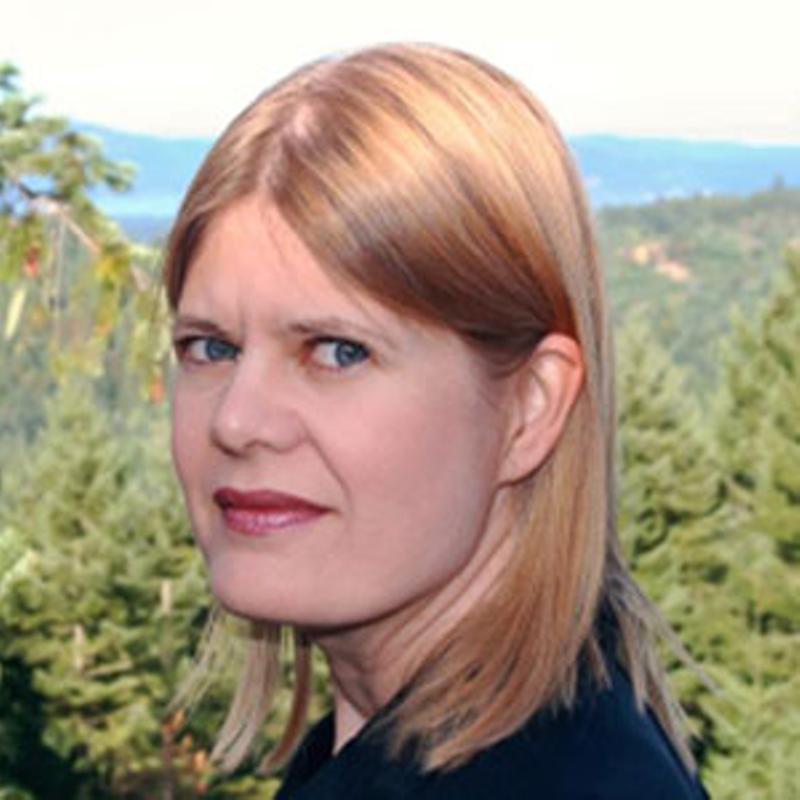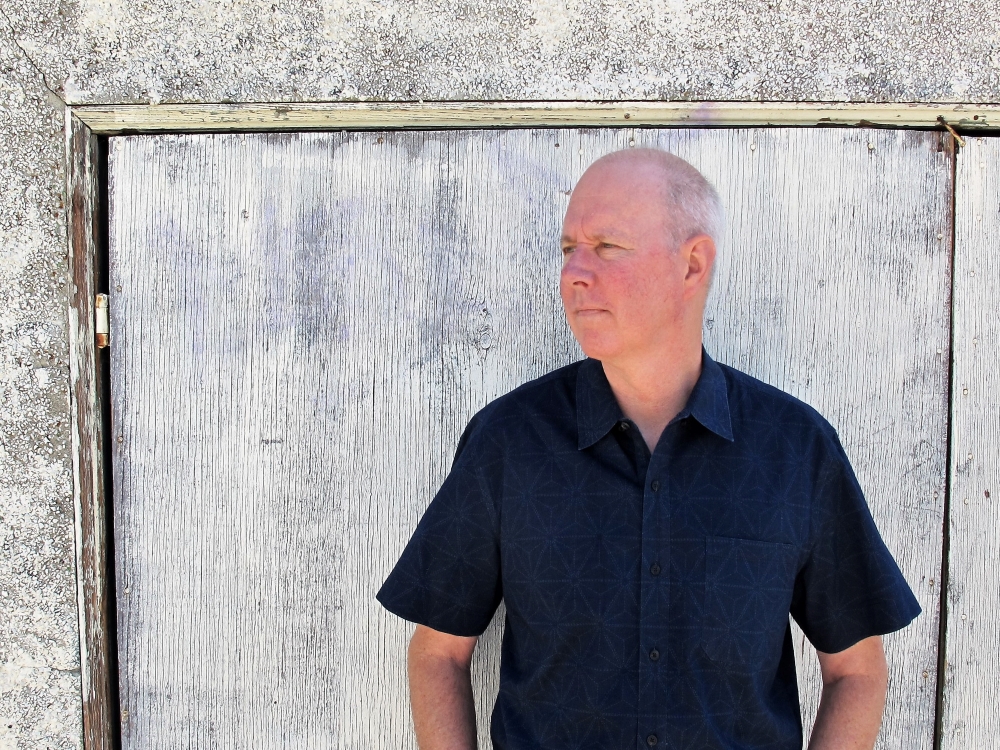After 40 years in journalism David Beers is sounding sirens about his chosen field and seeking to mobilize a new generation to join up. The title of the talk he will give at the University of Victoria on Tuesday, Feb. 7, carries the urgency of a battle cry: “The War on Journalists: Who’s waging it and why. And what’s at stake if they win.”
When Beers founded The Tyee two decades ago as one of Canada’s very first independent online-only news sites, he intended an “experiment to see if the nascent internet would allow the flourishing of diverse, public interest-minded journalism organizations, which collectively would strengthen Canada’s existing journalism ecosystem.”
Today he’s sobered to see that ecosystem not stronger but decimated.
Fresh layoffs at Canada’s largest newspaper chain Postmedia, as well as Victoria’s vibrant online startup Capital Daily, he notes, are further blows to the diminishing ranks of journalists in Canada. The trend is global, and Beers thinks it’s not by some accident of technological fate that journalism crafted to high standards — which he terms a “bulwark of democracy” — is left to atrophy.
Beers, an award-winning writer who worked in senior editor roles in two big city newsrooms and Mother Jones magazine before starting The Tyee in Vancouver, gives this year’s prestigious Harvey S. Southam Lecture, organized by UVic’s department of writing and free to the public. Visit the event page for more details.
In this interview he offers a preview of some of the ground he’ll be covering next Tuesday afternoon.
Deborah Campbell: Maybe we should start with your definition of journalist. Can’t anyone with a Twitter, YouTube or Substack account be a journalist today?
David Beers: They can certainly inhabit the media ecosystem and compete for attention with journalists who adhere to traditional methods of gathering, preparing and sharing news. But there can be a world of difference between the two types.
Joe Rogan’s podcast pulls in 11 million listeners per episode. His listeners may imagine him to be, perhaps, just an edgier version of a news interviewer on the CBC. In fact, Rogan has proven, over and over again, to provide a portal for disinformation, some of it deadly, as in the case of the quack anti-vax voices he’s had on. When Rogan took fire for that, his excuse was to say, sorry, maybe I should start vetting the guests I afford my powerful platform. In saying that he was declaring he’s no journalist whatsoever — more of a carnival barker flogging the next bogus attraction.
Actual journalists understand they will suffer direct consequences if they get things wrong, or distort the facts to suit their own aims and biases. Journalists with this understanding of their role can be found working in a variety of settings — corporate, the state-funded CBC or for a member-supported non-profit like The Tyee. What they all have in common are formal standards and practices and a commitment to finding and presenting fact-based truths instead of roping in rubes.
In my talk I’ll address the paradox that The Tyee could only exist on the internet, yet aspects of the internet have been weaponized to harass and defeat journalists. And I’ll spend a bit of time discussing how it is possible to hold distinct political values — mine are progressive — yet as a journalist adhere to rigorous principles, ethics and methods.
A "war" on journalists? That’s a pretty heavy word. What makes you say there is a war on journalists in Canada today?
A lot of discussion about the waning of our basic journalistic infrastructure in this country is talked about in the passive voice. What a shame, the shrinking of our newsrooms, the collapse of the advertisement-funded business model. So sad, the blurring of lines between solid information intended to empower citizens to reform democratic institutions, and destructive disinformation that merely disrupts and destabilizes.
I think it’s too passive to just keep repeating, “Journalism is in crisis. Journalists face challenges.” Talking this way about the dire state of professional journalism can give the impression that the weather simply, mysteriously changed and we all must get used to the new reality.
But one well-cited definition of war is organized theft on a large scale. So what I am trying to say with my use of the term “war” is that, indeed, there are identifiable forces actively working to steal from citizens this bulwark of democracy we call professional journalism in the public interest.
And so I start with a standard question for investigative journalists. Who stands to benefit? Who would gain from so massive a disruption?
The answer, as I’ll spend some of my talk explaining, is powerful figures who have no regard for democracy because it does not serve their egos, bank accounts or wills to power. Exhibit A, of course, has been Donald Trump, who’s followed the classic authoritarian playbook by trying to replace our understanding of reality with his own by uttering endless self-serving lies disseminated via cable television, radio and the internet. These lies find a receptive swath of the public hungry for a cult-like figure to lend meaning to their existences. Such tactics, and why they find a willing audience in atomized, confused and disillusioned people, was brilliantly explicated by the philosopher Hannah Arendt regarding mid-20th century fascism.
So the war on journalists might aptly be termed the war on reality itself. Once a citizenry’s shared reality is shattered, once basic facts that form the spine of narratives can’t be agreed upon, the playing field is open to would-be authoritarian leaders. We see the result played out today in Orbán's Hungary, Putin’s Russia, the Philippines shaped by Duterte, China and elsewhere.
Should Canadians be on guard for the emergence of our own Trump?
We needn’t wait for such a figure to emerge fully formed in our country. The conditions for democratic erosion exist, are ripening, because of the nature of the internet and who increasingly rules it. Consider the sweeping power of Facebook and its refusal to take responsibility as a prime disseminator of disinformation. To this day Mark Zuckerberg’s Meta refuses to admit to being a publisher because of the social responsibilities that entails.
Consider the fact that Elon Musk, when he still was the richest person in the world a year ago, told his then 63 million followers that Canada’s government was illegitimate because the convoyers’ call for its toppling expressed the will of most Canadians. No polling remotely showed that, of course, but since then Musk has only upped his trading in reckless bullshit right up until the day when he bought the very platform that delivered him such influence. And since then he’s even more actively embraced nutty conspiracy theories and paranoid tropes — to his rapidly grown audience of 127 million followers.
Zuckerberg is lately threatening to remove traditional news content from Facebook if Canada seeks to tax and regulate his powerful algorithm machine for molding public opinion. And Musk has expressed outright hostility towards established journalism entities, with a clear aim to poison faith in what they publish.
You have to ask why? If these guys are so smart how could they be so dumb about the methods of journalists and their essential role in a healthy society? My conclusion is these robber barons of the gilded digital age are part of the coalition making war on journalists. They want less scrutiny, less accountability, more leverage over our imaginations and collective narratives. That way lies more money and prestige for them, and I’ve concluded that’s all they really care about, bottom line.
What’s it like to be in the trenches then as a journalist these days?
Well it’s increasingly hard on your mental health, particularly for reporters in the field. Researchers have found higher incidences of depression, anxiety and PTSD among journalists than the wider population. Some of that is because of the revved-up demands of the 24-hour internet news cycle, which can thrust some journalists into grim or scary circumstances without much time to process.
Some of it arises from the precariousness of jobs in journalism combined with that grind.
Some journalists in the digital age are made to view horrible images by the bushel, and we’re learning that can take a real toll.
And a key source of harm to mental health in journalism is exposure to malevolent trolls who, via the internet, can target and anonymously and viciously attack journalists for what they’ve published. I consider these the foot soldiers of the war on journalists, mobilized to sow doubt, confusion and inchoate anger.
In October I joined over 40 practitioners in the field of Canadian journalism in a summit on mental health among journalists at Carleton University. Our top conclusion was that journalism has become a hazardous worksite and the industry doesn’t do a good enough job of protecting those on the frontlines. So, life during wartime, I suppose.
What’s to be done?
In making my case that there is a war on journalists, my aim is to issue a recruitment appeal. As precariously difficult as it has become to be a journalist these days, the stakes have never been higher. Even ten years ago, I’d not have imagined myself making the case that the bedrock of shared reality was itself under siege and that journalists — who after all are a pretty nerdy, earnest bunch — form a vital, small line of defense that powerful actors are striving to breach and overwhelm.
We need a new generation of journalists committed to fact-finding to solve problems and hold power accountable. We need business models and work cultures to support them in ways that take less of an emotional and physical toll. Nothing less than our democratic way of life is at stake.
This year’s Harvey S. Southam Lecture, organized by UVic’s department of writing and free to the public, will be delivered by Tyee editor-in-chief David Beers on campus at the University of Victoria at 3 p.m. on Feb. 7. Here are the details. ![]()
Read more: Rights + Justice, Media

















Tyee Commenting Guidelines
Comments that violate guidelines risk being deleted, and violations may result in a temporary or permanent user ban. Maintain the spirit of good conversation to stay in the discussion.
*Please note The Tyee is not a forum for spreading misinformation about COVID-19, denying its existence or minimizing its risk to public health.
Do:
Do not: